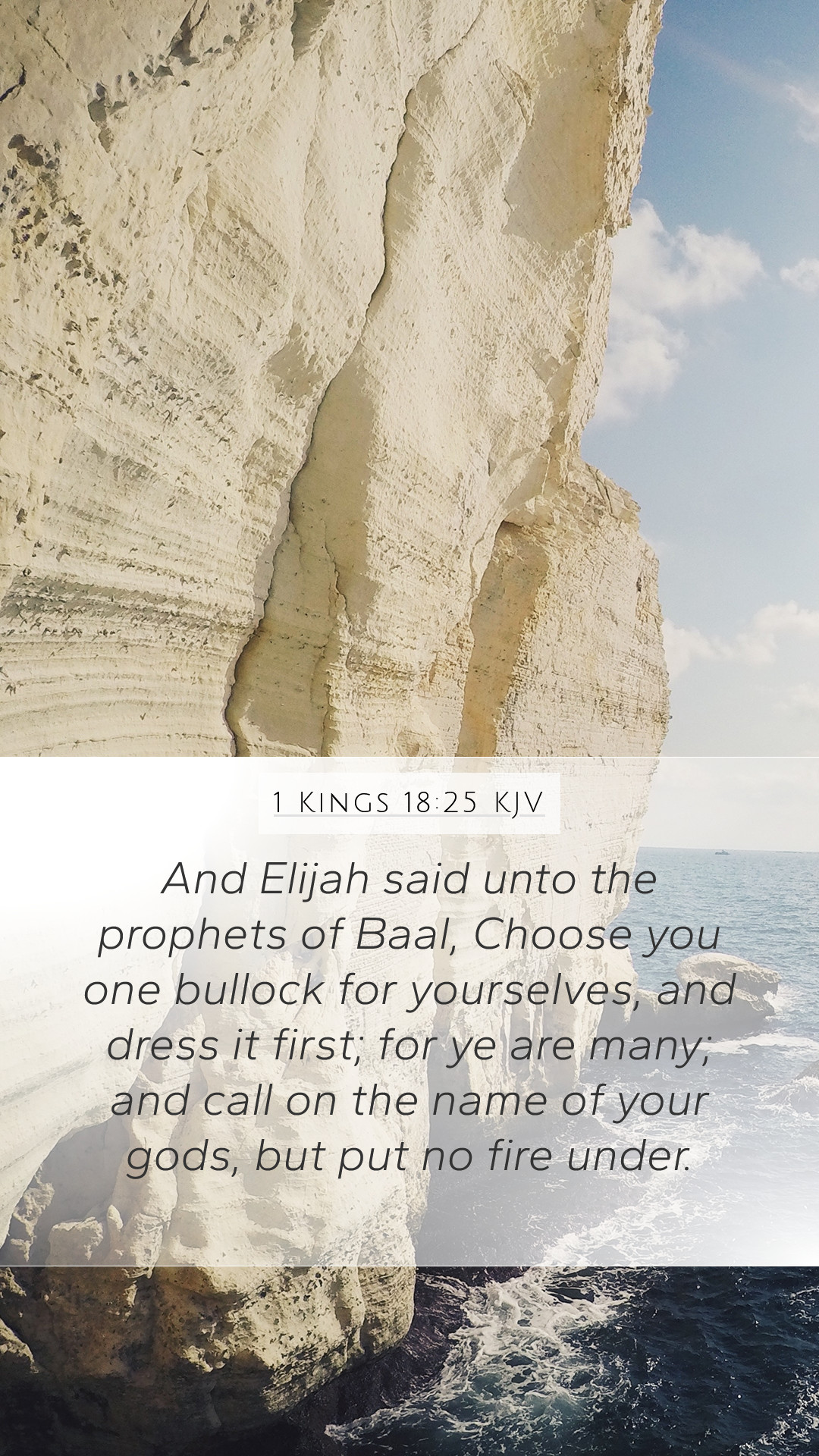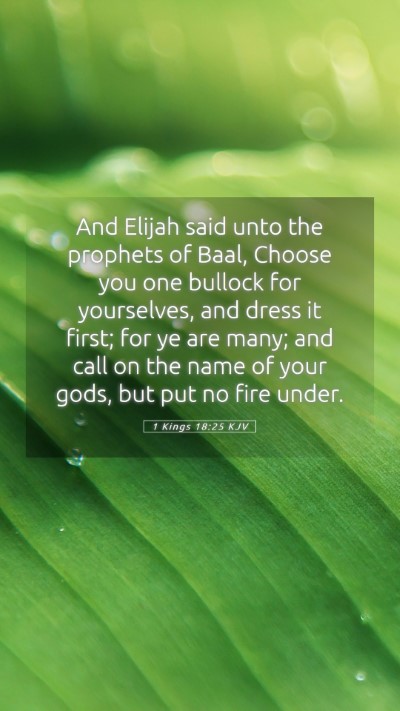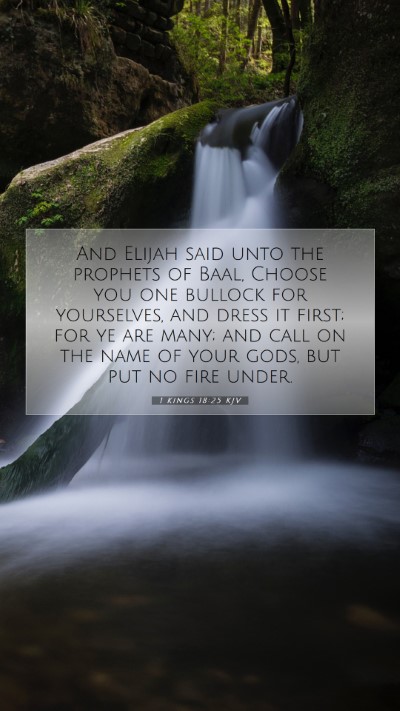Bible Verse Meaning of 1 Kings 18:25
Verse: "And Elijah said unto the prophets of Baal, Choose you one bullock for yourselves, and dress it first; for ye are many; and call on the name of your gods, but put no fire under." (1 Kings 18:25)
Overview
The context of 1 Kings 18:25 is set during an intense confrontation between the prophet Elijah and the prophets of Baal on Mount Carmel. This verse underscores the challenge that Elijah presents to Baal's prophets to demonstrate the power of their god through a test of fire. The scripture is pivotal in illustrating themes of idolatry versus true worship and the supremacy of Yahweh.
Commentary Insights
Insights from respected public domain commentaries provide a deeper understanding of this verse:
-
Matthew Henry:
Henry emphasizes that Elijah's challenge was intended to expose the falsehood of Baal worship. By allowing the prophets of Baal to go first, Elijah aimed to display their impotence and the futility of idol worship. This act serves as a precursor to God demonstrating His undeniable power, aligning with the larger narrative of the Lord's supreme authority.
-
Albert Barnes:
Barnes points out the strategic choice of allowing the prophets of Baal to select the bullock, reinforcing their confidence and ensuring a fair contest. He asserts that this method serves to prove that Yahweh alone is God, and the subsequent events illustrate that the true God does not require rituals or elaborate ceremonies to manifest His power.
-
Adam Clarke:
Clarke elaborates on the specificity of the challenge laid out by Elijah. The command to dress the bullock refers to the preparation of the sacrifice, an essential part of worship in ancient Israel. Clarke emphasizes that the act of calling upon Baal without fire symbolizes the futility of relying on idols, revealing their incapacity to respond to human needs.
Key Themes
-
Idolatry vs. True Worship:
The verse contrasts the worship of Baal with the worship of Yahweh, emphasizing the significance of authentic worship untainted by false practices.
-
Power of God:
By challenging the prophets of Baal, Elijah sets the stage for a powerful demonstration of God's sovereignty, which serves as a reminder of His unique position as the one true God.
-
Faith in Action:
This event encourages believers to have faith in God's abilities, knowing that He can respond to their needs beyond human expectations.
Application of the Verse
1 Kings 18:25 serves as a lesson on the importance of placing faith in God rather than in created things. In modern contexts, this verse invites individuals to evaluate what they might be placing their trust in and to reaffirm their belief in God's power and authority over life’s challenges.
Cross References
- Exodus 20:3-5 – God's command against idolatry.
- 1 Kings 18:21 – Elijah challenges the people about their divided loyalties.
- 2 Chronicles 33:3 – The consequence of idol worship in Israel.
Conclusion
The significance of 1 Kings 18:25 in the narrative builds towards a profound understanding of divine power versus human constructs of worship. For those engaging in Bible study insights, scripture analysis, and seeking Bible verse meanings, this verse encapsulates a pivotal moment in biblical history.
Further Study
For those interested in an in-depth Bible verse analysis, exploring the historical context of this passage can yield further understanding about the culture of the time, the nature of Baal worship, and the significance of prophetic actions in ancient Israel. Additionally, engaging in online Bible study or using Bible study resources may offer enriched perspectives on similar themes throughout scripture.


